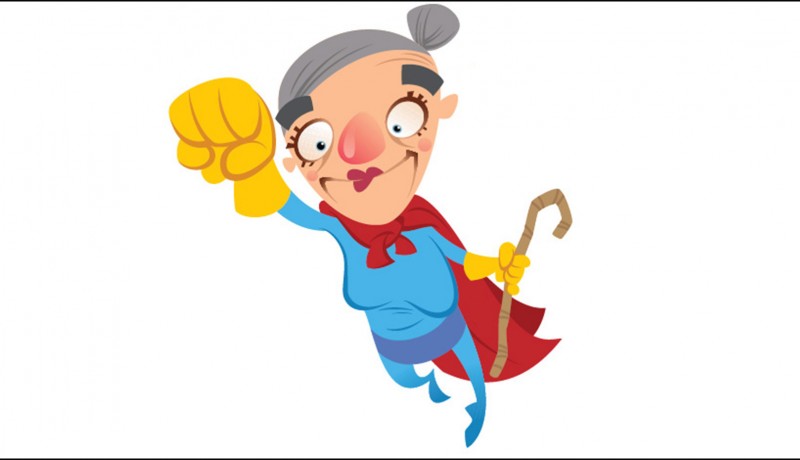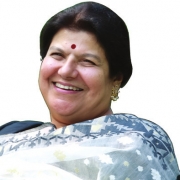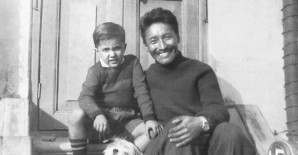
Columns

Author Paro Anand discusses virtues that make women the superior gender
Several years ago, I was on the admissions panel for a university course. There were several interviewers sitting in various rooms as there were so many applicants. When we compared notes, we realised we had not accepted a single boy; we had selected only girls. Post lunch, we thought we should correct this reverse gender bias. But it was almost impossible. The girls were smart, well prepared, had folders with certificates for all their achievements—academics and extra-curricular—were well groomed and polite. We were to ask one trick question that did not really have an answer just to test them on how they would handle it. To that, the girls would say, “I am not sure, but if you could give me some time, I could try and find out”, or simply, “I’m sorry, I don’t know the answer, could you let me know.”
The boys, on the other hand, were sloppy in comparison. The only preparation they had bothered with was walking to the water cooler to spike their hair with wet fingers. They shrugged a casual “Idonknow, Idonknow” in answer to the trick question and several others. They had not participated in much extracurricular and if they had, they had not bothered to bring the certificates along. So how were we supposed to take in the boys? The crux of it, as I figured out, was lack of motivation. It got me thinking on what was motivating girls over boys.
I think, in India, we have so pampered our sons and given them the best of everything whether they wanted/needed any of it or not. We have so overindulged them that we have actually robbed them of their motivation. They know that they are going to get things served to them on a platter, so why bother? At the admission interview, it was clearly a matter of life and death for many of the girls who saw this as an opportunity to get on in their life, their world. Because girls were being held back, sometimes subconsciously and sometimes even physically, their need to break through the shackles was making them score higher than boys. We see this in the Class 12 results as well. Over the years, it is girls who top over boys.
My son, as part of his MPhil at Oxford, did a study on how money was spent when there was a woman pradhan rather than a man in villages in Madhya Pradesh and Rajasthan. And the conclusions drawn from this study were that women were more likely to spend on infrastructural development in fields such as education, health and sanitation, whereas male pradhan allocated more budgets for roads, community halls, etc. Nothing wrong in either, but there is a difference in the way they thought of progress, one being from the bottom up and the other, maybe, from the top down.
On principle, I don’t ever think of one set of people being superior to the other. But looking around me, I cannot help but think of the possibility that perhaps girls are indeed a better bet than the much sought-after boys. If only girls would be given the opportunities that boys are given. But would giving them that opportunity be their undoing too? It’s a perverse way of thinking, but seeing the damage done to so many ma ka laal or pampered sons, I cannot help but wonder.
And that has got me thinking. Are women more ‘sensible’, more ‘practical’ and all those un-sexy words? But what if women were the natural born leaders and ruled the world; would this be a better place to live? If they were the decision makers, wouldn’t they have stayed closer home rather than plundering faraway lands? I am pretty sure that there would be fewer wars and invasions. Yes, of course, there have been women in wars. We know those, but we know them as exceptions rather than the rule. And there has not been a single female Genghis Khan or Hitler.
In everyday situations, too, I think we can all agree that women have much more forbearance than men. We do know that women make easier patients than men in the time of illness. When my own parents were ill at the same time, I found myself taking much more care, spending more time with my father because I was confident that Mum could ‘manage’ more on her own. And earlier on, too, when my father would be ill, we kids had to be much more solicitous and quiet. When Mum was ill, it was life as normal, almost. In fact, I remember a year when all four of us went down with the dreaded dengue fever. We were all in very bad shape; we had to hire a nurse. But Mum still continued to run the house, making sure we were all getting our medicines on time; she even had to fire the nurse because she was drinking up all the milk—something that was very hard to come by in those days of limited tokens. She chose to ignore her own illness to ensure her daughters would have the milk they needed. Dad was a lovely, loving man, but he would have kept that nurse on, milk or no milk!
Years later, I went with my parents on a holiday to London. I told Mum she should go do all the things that she wanted to and that I would look after Dad and let him do things at his pace. So she would be off in the morning, visiting art galleries and museums to her heart’s content. She was in her 80s and was suffering from such severe incontinence that once we even had to go into a shop and buy her a whole new set of clothes—including trousers and shirt, for the first time in her life—because her own clothes were soaked through. It didn’t stop her. She went straight to the chemist and bought herself a large pack of adult diapers which literally set her free. And she went on to recommend adult diapers gleefully to all her friends. And to me, when I complained about dirty toilets in some of the places I was travelling to. I know Dad would have been mortified and would have allowed this to rob him of his enjoyment. I loved Dad dearly but writing this article has forced me to look at the two of them and myself in a wholly different light.
Most of us have seen men struggle much more if they outlived their spouses, whereas women learn to live on their own. I saw women in my own life who learned to manage their grief, their lives and the futures of their growing children when they were left spouseless. This inspired me to write a book, Pure Sequence, published by Roli Books, which was based on the resilience of older women and the strength of female bonding. It centres on four women who are finding themselves left alone in their autumnal years, for one reason or another. They are bolstered by the strength they give each other; the little things they know will make the other comforted. But it is not a bleeding heart story; rather, one of the sheer grace of older women who know how to have fun. And, most of all, to live every day of their lives. One or two of the characters also find a sense of ‘self’, a sense of freedom that comes from finding yourself as the centre of your universe. Perhaps for the first time in their lives, they are the priority. And this is something I wanted to celebrate.
In a review in Harmony-Celebrate Age, when the book came out, the writer wrote, “You may find yourself here.” It is one of the best compliments I have ever got for my work. I adore the men in my life and have no quarrel with them in any way, but the question rears its head once again: would the world have been a better place with women in charge? I cannot help but say, ‘rather think so’.
Anand’s graphic novel, 2, was launched recently
Photo: 123RF.com Featured in Harmony — Celebrate Age Magazine March 2018
you may also like to read
-
Mental workout
Mukul Sharma tells you how to keep those grey cells ticking Everyone will ultimately lose his or her brain….
-
Helpline
Dr Harshbir Rana answers your queries on personal and social issues related to ageing, elder care and intergenerational relationships ….
-
Off the cuff
Raju Mukherji pays tribute to his first hero, Tenzing Norgay, an exemplary mountaineer Darjeeling, 1955. Dr ‘Pahari’ Guha Mazumdar….
-
Yoga RX
Shameem Akthar shows ways to control debilitating ankle pain through regular practice Ankle pain is so common and prevalent….








